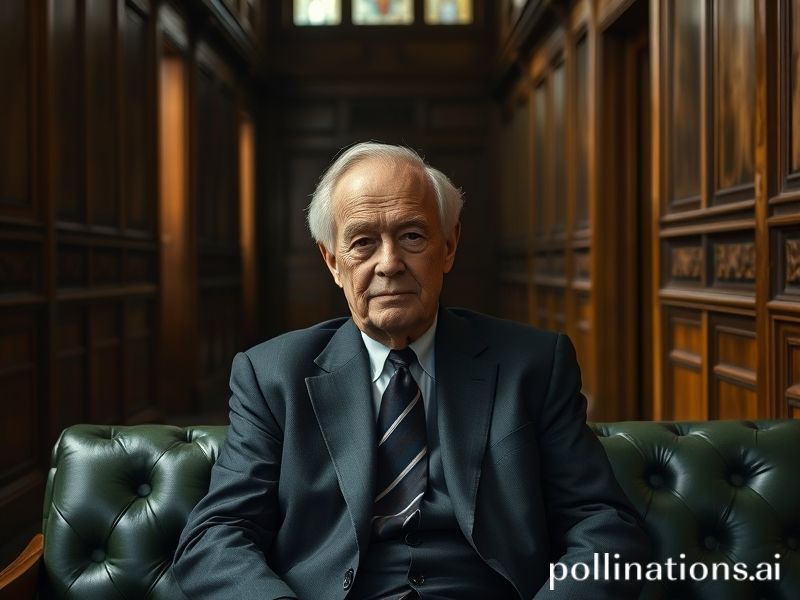Sir Ming Campbell: The Last Civil Man in a World on Fire
Ming Campbell, the man whose very name sounds like a budget airline that would leave you stranded in Tirana, has spent a lifetime proving that dignity in politics is not only possible but also oddly unpopular. At eighty-three, the former Olympic sprinter turned Liberal Democrat grandee now sprints mainly between BBC studios and House of Lords tea trolleys, offering the world a masterclass in how to remain civil while everyone else is busy setting the planet on fire.
From Beijing to Brasília, Campbell’s career reads like a cautionary tale for anyone still naive enough to believe that rational argument beats raw populism. While other nations watched the United Kingdom vote to leave the European Union with the same horrified fascination usually reserved for motorway pile-ups, Campbell stood in the Westminster chamber warning that the road ahead was “strewn with hubris and tarmacced with delusion.” History, ever the smug librarian, has since filed that speech under “I told you so.”
Globally, Campbell matters because he represents the last wheeze of a certain kind of patrician internationalism—think United Nations cocktail party rather than Twitter dog-pile. When the world pivoted from multilateral cocktail shakers to unilateral Molotov throwers, Campbell kept polishing his cufflinks and quoting Gladstone, apparently under the charming illusion that facts are stubborn things. They are; they’re just not as stubborn as voters.
The wider significance is almost touching. In capitals where “liberal” has become a slur hurled by both right and left like a live grenade in a china shop, Campbell’s brand of courteous progressivism is now displayed in the Museum of Extinct Political Species, somewhere between the Dodo and the Socially-Conscious Tory. His insistence on combining humanitarian intervention abroad with fiscal prudence at home now looks as quaint as dial-up internet, but with worse polling numbers.
Yet the joke is on us. While populists from Washington to Warsaw discovered that xenophobia sells better than a two-for-one vodka promotion, Campbell kept insisting that the rule of law and boring old institutions still matter. When Russia annexed Crimea, he urged sanctions and diplomacy; meanwhile, the internet demanded memes and war. When Syria imploded, he called for safe zones and multilateral pressure; Twitter countered with emoji flags and performative outrage. The scoreboard currently reads: Chaos 1, Campbell 0.
Still, there is something grimly comic about watching a man who once outran the Soviets on the track now outrun relevance in the news cycle. The international takeaway is stark: in an age when politics rewards the loudest megaphone, the soft-spoken elder statesman becomes background noise—like a smoke alarm with fading batteries, intermittently beeping while the house burns.
And yet, and yet. Every so often, the global cacophony pauses. During last year’s COP summit, when a delegate from the Maldives quoted Campbell’s 2007 warning that “the cost of inaction compounds like a payday loan,” the camera caught a small, satisfied smile. It was the smile of a man who realizes that Cassandra, though never invited to the victory party, still keeps the receipts.
So raise a lukewarm glass to Sir Menzies Campbell: the last knight of a realm that doesn’t quite exist anymore, jogging stoically through the rubble of post-truth politics in immaculately polished brogues. He may not stop the collapse, but at least he’ll note its precise coordinates for the eventual inquest. In a world increasingly run by pyromaniacs, that counts as a public service—even if the fire brigade never answers the phone.







